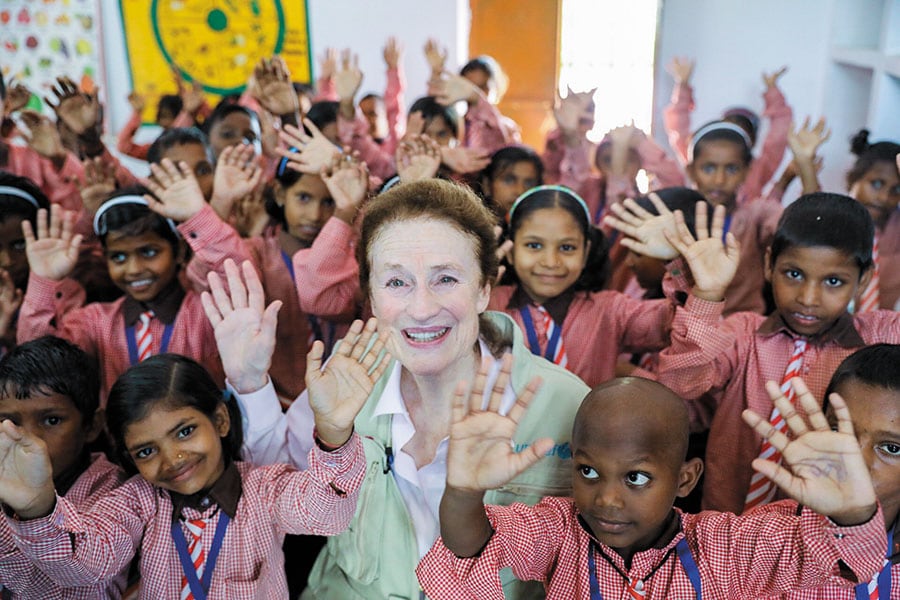'54% South Asian youth unfit for employment in 2030': Unicef head
Unicef's Henrietta H Fore on why more than 50 percent of the youth in South Asia do not have the skills for employment in 2030


 Image: Unicef / Vishwanathan [br]Henrietta H Fore, Unicef’s seventh executive director, was in India recently to launch a programme called Generation Unlimited. It aims to provide education and develop skills among those in the 10-24 age group. In an interview with Forbes India, she talks about how the government can revive the education system and impart skills that will boost the economy. Edited excerpts:
Image: Unicef / Vishwanathan [br]Henrietta H Fore, Unicef’s seventh executive director, was in India recently to launch a programme called Generation Unlimited. It aims to provide education and develop skills among those in the 10-24 age group. In an interview with Forbes India, she talks about how the government can revive the education system and impart skills that will boost the economy. Edited excerpts:
Q. India"s GDP has slowed to a six-year low. How will development of skills help the economy?
Education and skills are inextricably intertwined. What we are seeing is that almost half of South Asian youth are not on track to have the education and skills necessary for employment in 2030… we"re missing an enormous economic potential for the world.
Q. What steps should the government take to reform the education system to meet the demands of a digital world?
Prime Minister Narendra Modi has been a strong supporter of ways to help young people be skilled and launch startups. It"s a good model for the world. What we still need to do in every country is to try to connect the education and skilling systems. Also, it is important that the private sector pitches in in this regard.
Q. What kind of investments will the government have to make to ensure that the youth is employable?
As we go through primary school, knowledge about reading, writing and mathematics will be essential. By the time you"re in secondary school, you need lots of transferable skills and critical thinking. You also need some occupational skills. And of course, everyone needs digital skills.
Q. Is the government"s investment in skills development enough?
It"s never enough. It"s a constant learning environment. We have so many possibilities now with ed-tech and artificial intelligence. We have to create educational systems that empower young people. And then we need job-matching platforms. We need career counselling. The youth will need to be flexible because the world to come will be one of having to change many jobs and skills, and they need to be adaptable.
Q. How closely is economic growth linked with skills development and employability?
Economic growth cannot exist without the development of skills. Recently, we’ve launched a report, which says 54 percent of the young people within the South Asian region do not have the skills they need for employability in 2030. It means these countries cannot contribute to the growth of the world economy.
Q. What is your message to the young people of India?
Every child has the right to education and an identity. It"s an important time to look back at what a child"s life was 30 years ago. There"s a digital world out there now. Young people say the number one challenge they would like us to address is modernising education and connecting it to skills. They are also worried about the environment, their identities online and fake news. Young people today have their own voice. They"re strong and want to contribute economically, socially and politically.
First Published: Nov 06, 2019, 11:26
Subscribe Now